第68章 IS CONGRESS THE PRESIDENT'S MASTER?(2)
Such is the mental perspective in which to regard the speech of Stevens of January 22,1862.With masterly clearness,he put his finger on the heart of the matter:the exceptional problems of a time of war,problems that can not be foreseen and prepared for by anticipatory legislation,may be solved in but one way,by the temporary creation of the dictator;this is as true of modern America as of ancient Rome;so far,most people are agreed;but this extraordinary function must not be vested in the Executive;on the contrary,it must be,it is,vested in the Legislature.Stevens did not hesitate to push his theory to its limit.He was not afraid of making the Legislature in time of war the irresponsible judge of its own acts.Congress,said he.has all possible powers of government,even the dictator's power;it could declare itself a dictator;under certain circumstances he was willing that it should do so.[7]
The intellectual boldness of Lincoln was matched by an equal boldness.Between them,he and Stevens had perfectly defined their issue.Granted that a dictator was needed,which should it be--the President or Congress?
In the hesitancy at the White House during the last eclipse,in the public distress and the personal grief,Lincoln withheld himself from this debate.No great utterances break the gloom of this period.Nevertheless,what may be considered his reply to Stevens is to be found.Buried in the forgotten portions of the Congressional Globe is a speech that surely was inspired-or,if not directly inspired,so close a reflection of the President's thinking that it comes to the same thing at the end.
Its author,or apparent author,was one of the few serene figures in that Thirty-Seventh Congress which was swept so pitilessly by epidemics of passion.When Douglas,after coming out valiantly for the Union and holding up Lincoln's hands at the hour of crisis,suddenly died,the Illinois Legislature named as his successor in the Senate,Orville Henry Browning.The new Senator was Lincoln's intimate friend.
Their points of view,their temperaments were similar.
Browning shared Lincoln's magnanimity,his hatred of extremes,his eagerness not to allow the war to degenerate into revolution.In the early part of 1862he was Lincoln's spokesman in the Senate.Now that the temper of Wade and Chandler,the ruthlessness that dominated the Committee,had drawn unto itself such a cohort of allies;now that all their thinking had been organized by a fearless mind;there was urgent need for a masterly reply.Did Lincoln feel unequal,at the moment,to this great task?Very probably he did.Anyhow,it was Browning who made the reply,[8]a reply so exactly in his friend's vein,that--there you are!
His aim was to explain the nature of those war powers of the government "which lie dormant during time of peace,"and therefore he frankly put the question,"Is Congress the government?"Senator Fessenden,echoing Stevens had said,"There is no limit on the powers of Congress;everything must yield to the force of martial law as resolved by Congress.""There,sir,"said Browning,"is as broad and deep a foundation for absolute despotism as was ever laid."He rang the changes on the need to "protect minorities from the oppression and tyranny of excited majorities."He went on to lay the basis of all Lincoln's subsequent defense of the presidential theory as opposed to the congressional theory,by formulating two propositions which reappear in some of Lincoln's most famous papers.Congress is not a safe vessel for extraordinary powers,because in our system we have difficulty in bringing it definitely to an account under any sort of plebiscite.On the other hand the President,if he abuses the war powers "when peace returns,is answerable to the civil power for that abuse."But Browning was not content to reason on generalities.